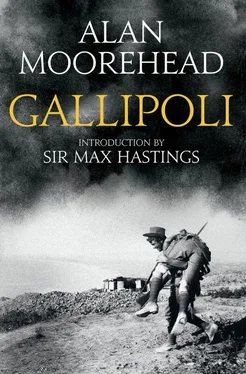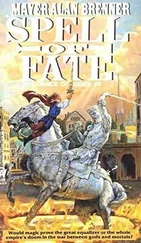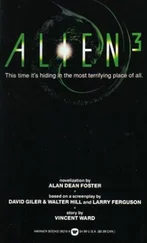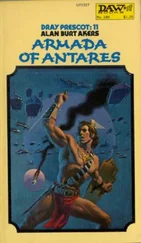Living as they did beneath the ground, many of the men became absorbed in the insect life around them. They set on centipedes and scorpions to fight one another, and hours would go by while they watched the ant-lion digging his small craters in the, sand. Round and round he would go, clockwise and then anticlockwise, scooping up the soil with his great flippers, tossing it on to his head, and then with an upward jerk flipping it over the rim of the crater. When finally the crater was finished, and the ant-lion was lying in hiding at the bottom, the soldiers would drive beetles and other insects up to the rim, and there would be the quick scuiBe in the sand, the pounce and then the slow death as the ant-lion sucked his victim dry. In this troglodyte war in the trenches there was perhaps something symbolic about the ant-lion.
A stream of rumours (known on the Anzac bridgehead as ‘furphies’), flowed through the trenches, and they were usually based upon something which was heard ‘down on the beach’, or from someone’s batman or cook or signaller at brigade or battalion headquarters. The most lurid stories were passed along: the Turks in one sector had all been dressed as women, Hamilton had been sacked, the Russians had landed on the Bosphorus and had sunk the Goeben , Enver had ordered a general offensive to celebrate the first day of Ramadan on July 12, a notorious female spy had been captured in a ship at Mudros.
Unless a battle was in progress one day was very like another; the stand-to in the trenches at 3 a.m., the first shots at dawn rising to a crescendo and dying away again; the morning shelling, the evening bathe, the ritual of brewing tea and the long conversations in the starlight; finally the muffled sound of the mule teams coming up to the front with stores from the beach as soon as darkness fell.
Occasionally the unexpected happened, as when a German and a British aeroplane, flying low like wasps, fought a rifle duel with one another over the trenches, and both armies held their fire to watch it; and again when the Turks sprinkled the Allies’ lines with pamphlets in Urdu appealing to the Indian soldiers not to fight their brother Moslems — a device that had very little success with the Gurkhas, who were unable to read Urdu and who, being Buddhists, loathed Mahomet.
The Air Force had a particular fascination for the soldiers. Being chained to their trenches, the men could only dream of what it might be like to roam far behind the enemy lines. To see the other side of Achi Baba was to them almost as wonderful as to see the other side of the moon. As for Constantinople, it was lurid fantasy, a vision of minarets and spice bazaars, of caliphs and harems of jewels and odalisques and whirling dervishes. Constantinople, of course, was not like this at all; but just to have the possibility of winging your way there through the air — this in 1915 had a touch of the magic carpet about it. And there was, in fact, an immense exhilaration in the adventures of these box kites in the sky. Within a day or two Samson had established what would now be called an airstrip at Cape Helles, and although he was shelled every time he took off and landed he continued there, to the admiration of the soldiers, for a week or two. When finally he decided that it was more sensible to make his base on the island of Imbros he left a dummy plane behind, and the Army had the enjoyment of watching the Turks bombarding it for a week on end. Some 500 shells exploded on the field before the machine was demolished.
Samson liked to go up in the first light of the morning, and having waved to the British soldiers in the trenches he flew on up the peninsula to catch the Turks around their cooking fires. Then he would return in the last light of the evening to shoot up the enemy camel teams and bullock carts as they set out on their nightly journey to the front.
Both British and French airmen helped the Allied submarines as they made their passage of the Narrows by flying overhead and distracting the attention of the Turkish gunners; and often they joined Nasmith, Boyle and the others in the attack on the supply lines at the neck of the peninsula. Once a British pilot succeeded in torpedoing a Turkish vessel from the air. There were frequent disasters; a seaplane with a faulty engine would alight perhaps in the straits and then, with enemy bullets churning up the water all around, the machine would limp away across the sea like some maimed bird until it reached the safety of the cliffs.
These were absorbing spectacles for the soldiers in the trenches; in a world where everything was earthbound and without movement the airmen brought a sense of freedom into life.
As at Anzac, the men at Cape Helles had no personal hatred of the Turks, and there was a good deal of sympathy for them when, after one of their disastrous assaults, they asked for an armistice to bury their dead. Hamilton, on the advice of Hunter-Weston’s headquarters, refused the request, as it was believed that the Turkish commanders wanted to renew the attack and were having difficulty in inducing their men to charge over ground that was strewn with corpses.
‘A bit of hate is just what our men want here,’ one of the British colonels wrote. ‘They are inclined to look on the Turk as a very bad old comic… one feels very sorry for the individual and absolutely bloodthirsty against the mass.’ It was a common thing for the soldiers to offer prisoners their waterbottles and packages of cigarettes as soon as they were captured.
After June it was noticed that a psychological change was overtaking the Army. Whenever there was the project of another battle sickness fell off, and if the men were not actually as eager for the fight as their commanders pretended them to be, they were at least unwilling to see others take their place. It was the dogged attitude of the man who, having been obliged to undertake a disagreeable job, is determined to finish it. Always too they hoped that this battle was to be the last. Then, when the attack was over and all their hopes had come to nothing, the reaction set in. More and more men reported sick. Discipline flagged, and a despondent and irritable atmosphere spread through the trenches. To accept risk in idleness, to wait under the constant shelling without plans and hopes — that was the intolerable thing.
After the mid-July battles this attitude towards the campaign became more marked than ever. The number of patients going to the doctors increased in every regiment, and although batches of them were sent off on leave to Imbros so that they would escape the shell fire for a few days the ennui continued, the sense of waste and loss. There were cases of men putting their hands above the parapet so that they would be invalided away with a minor wound, but it was not malingering on a large scale; nearly all were dysentery cases, and without the stimulus of action the soldiers were genuinely unable to find the necessary resistance to fight the disease. Many in fact were so infected that they never returned to the front again.
The situation was not altogether unlike that of the British Army in the Western Desert of Egypt in the summer of 1942 in the second world war. The men were exhausted and dispirited. Nothing ever seemed to go right; they attacked, and always it ended in the same way, the stalemate, the long boring labour of carrying more ammunition up to the front so that they could repeat the same futile proceedings all over again. Many of the soldiers began to say openly that the whole expedition was a blunder; the politicians and brasshats at home had tried to pull off a victory on the cheap, and now that it had failed the expedition was to be abandoned to its fate. This was the real core of their grievances: that they were being neglected and forgotten. The armies in France were to have the favours, and Gallipoli no longer counted for anything at all. It was true that reinforcements were arriving, but they were too late and too few. The casualties had been too heavy.
Читать дальше












